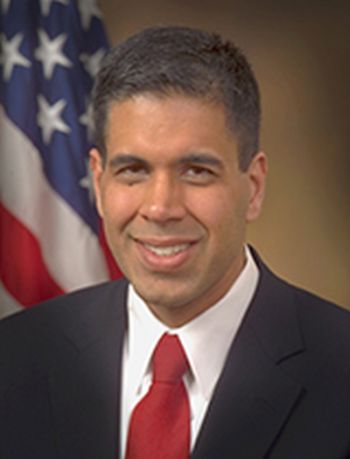 The United States Senate has confirmed Indian-American Judge Amul Thapar to a key judicial position on the powerful US court of appeals.
The United States Senate has confirmed Indian-American Judge Amul Thapar to a key judicial position on the powerful US court of appeals.
The first Indian-American to be nominated by US President Donald Trump for the 6th US Circuit Court of Appeals, Thapar was confirmed by the Senate 52-44, a vote which took place on party lines.
With this, Thapar will become the second South Asian judge to be on a US Circuit Court of Appeals, which hears appeals from Kentucky, Tennessee, Ohio and Michigan.
"Judge Thapar will make an outstanding addition to the US Appeals Court for the Sixth Circuit," said Senate Majority Leader Mitch McConnell on Thursday.
Currently a US District Court Judge, Thapar was nominated by Trump on March 21. Thapar was among the 20 judges whose names Trump had released during his presidential campaign as shortlisted candidates for his Supreme Court nominees.
McConnell said Thapar has a reputation as a qualified judge with an impressive legal mind and will fairly apply the law to all who enter his courtroom.
"Judge Thapar has been recognised for his work on the bench, and the most recent edition of the Almanac of the Federal Judiciary quoted attorneys who agreed that Thapar has excellent legal ability," he added.
McConnell said that the American Bar Association, which prominent Senate Democrats have called "the gold standard" forevaluating judges, awarded Thapar its highest rating.
The South Asian Bar Association of North America also congratulated Judge Thapar on his confirmation to the Sixth US Circuit Court of Appeals.
"On behalf of SABA, I congratulate Judge Thapar who is a proven asset to the federal judiciary, the people of the commonwealth of Kentucky whom he's served for almost a decade, and the South Asian legal community," said SABA president Vichal Kumar.
"Judge Thapar's confirmation further cements his legacy as a pioneer, esteemed jurist and dedicated public servant. We anticipate that Judge Thapar's renowned dedication to his craft and commendable judicial temperament will serve him well in this integral position," he said.
Indian-American attorney Ravi Batra said that unlike Sri Srinivasan, Amul Thapar has been elevated while thinking that law is "devoid of equity or compassion".
"There is a difference between reality and a reality show, the latter is fiction. One hopes that he will find the moral compass of the late great Justice Antonin Scalia," said Batra.
In 2007, the then George W Bush nominated him to be a United States District Judge for the Eastern District of Kentucky. At that time, the Senate confirmed his nomination by a voice vote, and Judge Thapar became the first South Asian American federal judge in the history of the US.
Prior to joining the bench, Thapar, winner of SABA's Pioneer Award, served as the US attorney for the Eastern District of Kentucky from 2006-2007, where he was one of the first American Attorneys of South Asian descent.
During that period, Thapar was appointed to the attorney general's advisory committee and chaired the AGAC's Controlled Substances and Asset Forfeiture subcommittee. He also served on the Terrorism and National Security subcommittee, the Violent Crime subcommittee, and Child Exploitation working group.
He has also taught at the University of Virginia School of Law, Vanderbilt Law School, and the Northern Kentucky University Chase College of Law.
Thapar received his undergraduate degree from Boston College and his law degree from the University of California, Berkeley.










